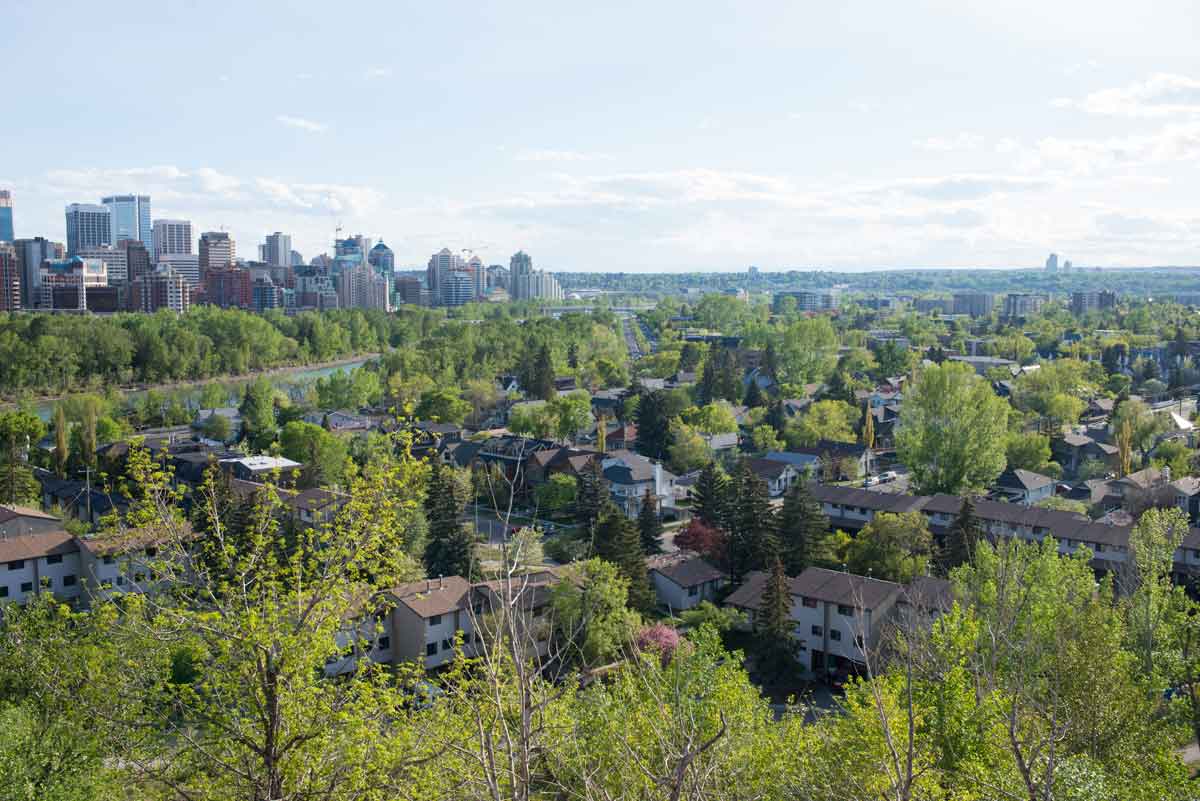Why Calgary Real Estate Offers Hope in a Tumbling Market
As economic uncertainty weigh on Canadian real estate, Calgary remains a beacon of resilience. While markets like Toronto and Vancouver face price corrections and affordability crises, Calgary’s diversified economy, strategic advantages, and favorable policies position it for long-term stability—and a hope for balanced market.
From energy sector strength to interprovincial migration surges, here are 10 key reasons—plus 7 powerful macroeconomic drivers—why Calgary’s real estate market is uniquely insulated from national downturns.
1. Affordability Compared to Other Major Cities
While Vancouver and Toronto home prices remain out of reach for many, Calgary’s average home price is still lower, making it a magnet for first-time buyers, investors, and relocating professionals. Calgary offers better value per square foot and lower entry costs.
2. Alberta’s Surplus Economy vs. Provincial Deficits Elsewhere
Unlike Ontario and B.C. (which face rising debt and strained public finances), Alberta is running budget surpluses, thanks to strong energy revenues and fiscal discipline. This economic stability supports job growth, infrastructure spending, and housing demand.
3. Trans Mountain Pipeline & Energy Corridor Expansion
The completed Trans Mountain Pipeline expansion (2024) has strengthened Alberta’s oil export capacity, boosting Calgary’s energy sector. Additionally, proposed hydrogen and carbon capture hubs are positioning Alberta as a leader in the global energy transition, attracting investment and high-paying jobs.
4. Canada’s LNG Boom: Kitimat & Beyond
With global energy security concerns (especially in Europe and Asia), Canada’s LNG exports are set to surge. The Kitimat LNG terminal (operational in 2025) and potential new Alberta-B.C. gas corridors will further solidify Calgary’s role as Canada’s energy capital, driving commercial and residential real estate demand.
5. Strengthened Interprovincial Trade & Labor Mobility
The New West Partnership and other trade agreements are making Alberta more business-friendly, while interprovincial migration (especially from Ontario and B.C.) is accelerating. Skilled workers and companies are relocating to Calgary for lower taxes, affordable housing, and job opportunities.
6. Tight Rental Market with Rising Demand
Calgary’s vacancy rate remains near record lows (below 2%), and rents are climbing as demand outpaces supply. Investors are seeing strong cash flow potential in multi-family and student housing, unlike overheated markets where cap rates are razor-thin.
7. Record Interprovincial Migration to Alberta
Over 50,000 people moved to Alberta from other provinces in 2023 alone, with Calgary as the top destination. This population surge is driving up housing demand, particularly for single-family homes and suburban developments.
8. Builder Incentives & Master-Planned Communities
New communities like Rangeview, Hotchkiss, and Livingston offer pre-construction deals, flexible financing, and modern amenities, attracting families and investors. Calgary’s land availability allows for sustainable growth, unlike land-constrained cities like Vancouver.
9. Alberta’s Tax Advantage: No PST, Low Property Taxes
Alberta remains the most tax-competitive province—no PST, low corporate taxes, and reasonable property taxes. For investors and homeowners, this means higher disposable income and better ROI compared to high-tax regions.
10. Infrastructure Investment & Transit Expansion
With the Calgary Ring Road now complete and Green Line LRT expansion underway, the city’s connectivity is improving, enhancing property values in emerging neighborhoods.
Bonus: 7 Macroeconomic & Geopolitical Drivers Bolstering Calgary
11. Global Energy Shifts Favor Alberta
With Europe reducing reliance on Russian energy and Asia demanding more LNG, Alberta’s oil and gas sector is strategically critical. Calgary’s energy expertise ensures long-term economic resilience.
12. Tech & Diversification: Calgary’s Emerging Innovation Hub
Amazon, Dow’s new net-zero plant, and a booming tech scene (with over $1B in VC funding in 2023) are transforming Calgary into a dual-energy-and-tech hub, attracting young professionals.
13. Investor Shift from Overpriced Markets to Alberta
As Toronto and Vancouver real estate stagnates under high rates, investors are pivoting to Calgary for higher yields in multi-family, industrial, and suburban developments.
14. U.S. & International Interest in Alberta Real Estate
With the weak Canadian dollar, U.S. and foreign buyers see Calgary as a high-value opportunity, particularly in commercial and rental properties.
15. Federal Immigration Policies Fuel Demand
Canada’s aggressive immigration targets (500,000+ annually) mean Calgary will continue absorbing new residents, sustaining housing demand even if other markets slow.
16. Supply Chain & Logistics Growth
As nearshoring (moving manufacturing closer to North America) gains traction, Calgary’s industrial real estate is benefiting from warehouse and distribution center demand.
17. Political Stability & Pro-Business Policies
While other provinces debate higher taxes and regulations, Alberta’s government remains focused on economic growth and investment-friendly policies, reinforcing Calgary’s appeal.
Conclusion: Calgary’s Market is Built for the Long Term
- Affordability in a high-rate environment
- Economic diversification beyond just energy
- Population growth from migration & immigration
- Strong rental and investment demand
For buyers, sellers, and investors, Calgary represents one of Canada’s most resilient and opportunity-rich markets.
📞 Let’s Discuss Your Calgary Real Estate Strategy
Malvinder S. Tiwana
🏡 REALTOR® | 21+ Years of Experience in Calgary & Area
🌐 www.maltiwana.ca
📧 info@maltiwana.ca | ☎️ (403) 830-5152
🔑 Residential | Commercial | Rural | Investment Properties








